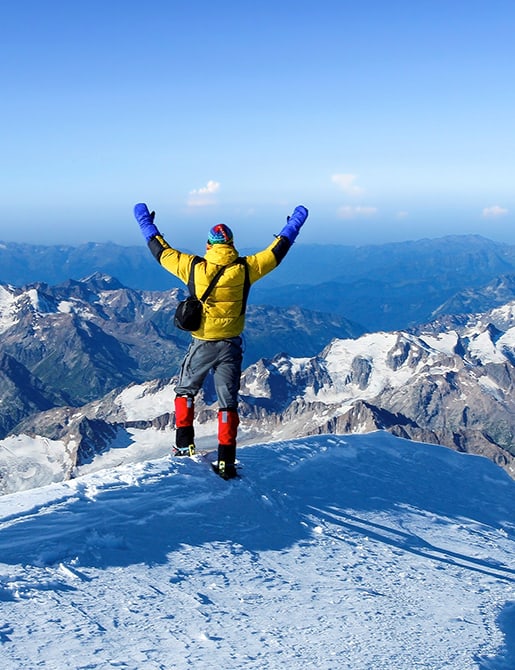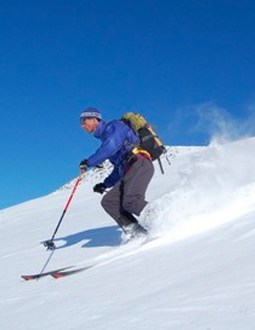Youth Rock Climbing Camps are open for booking!
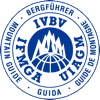

In this course you will be introduced to all aspects of classic mountaineering in the arguably most diverse venue in the lower 48 states - the North Cascades National Park. The immediate access to moderately crevassed glaciers, steep climbing on great rock and exposed ridge travel make the North Cascades National Park the ideal setting for a mountaineering course. Most often these courses take place in the Boston Basin, but locations may vary, depending on weather and general mountain conditions.
2025 Course Dates:

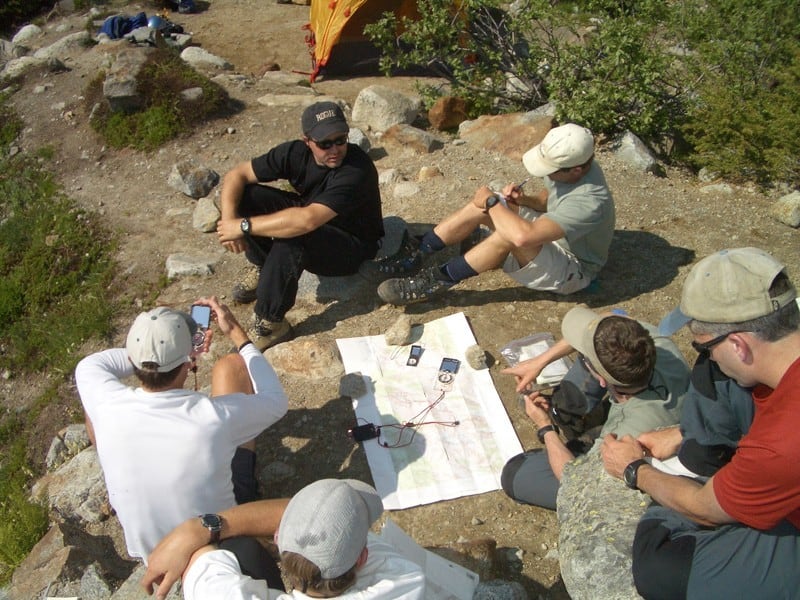
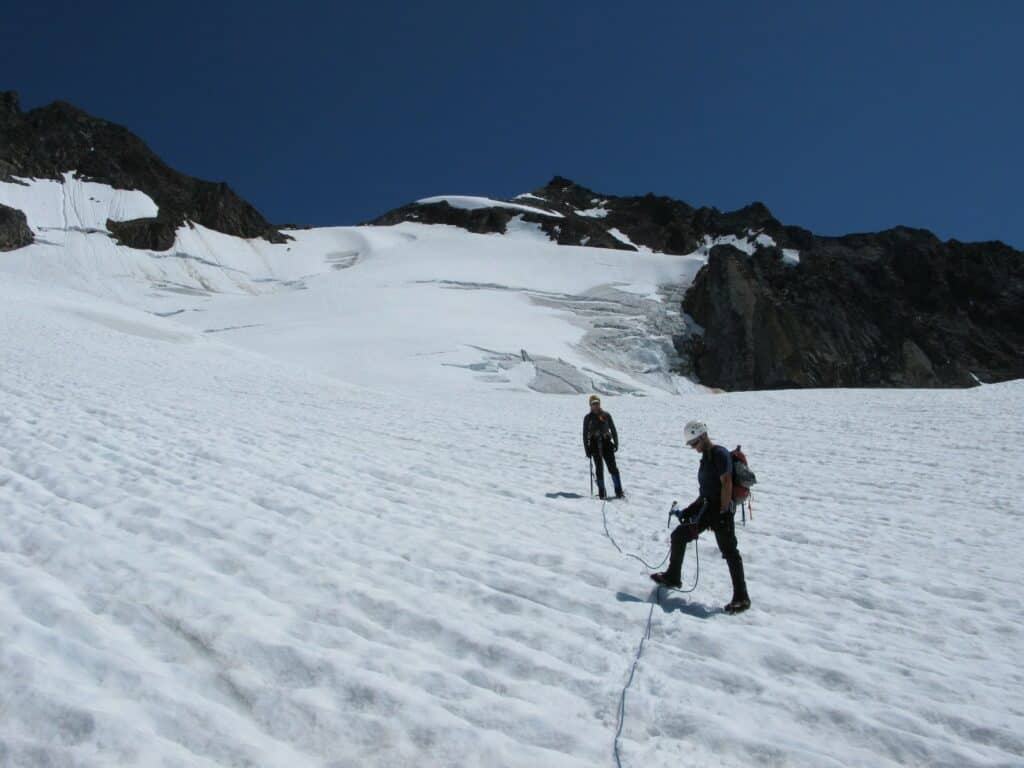
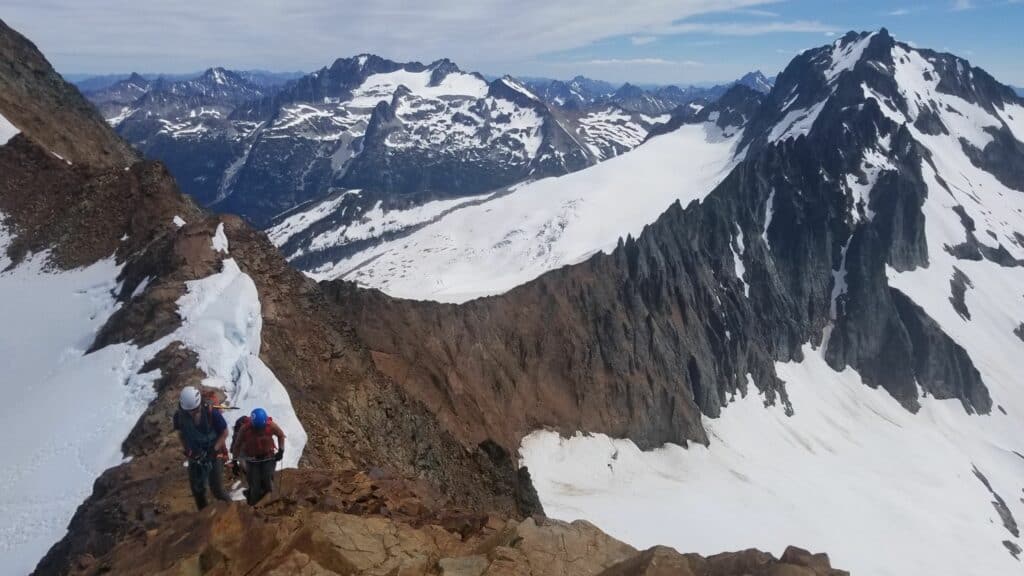
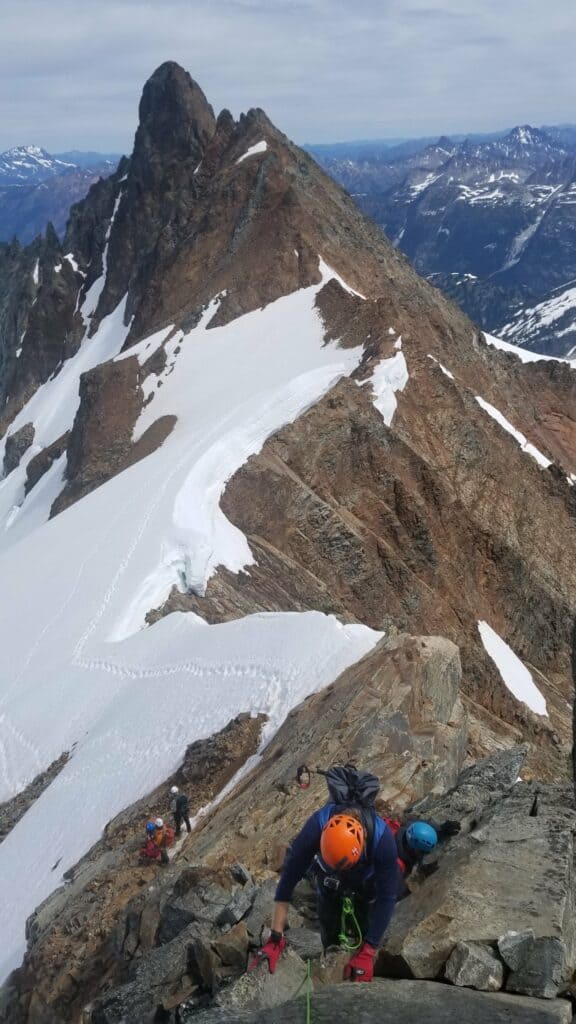
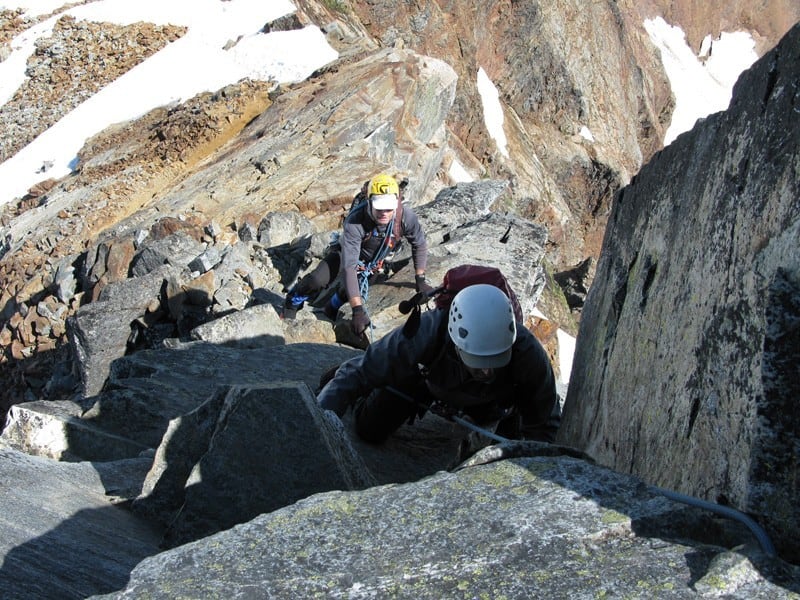
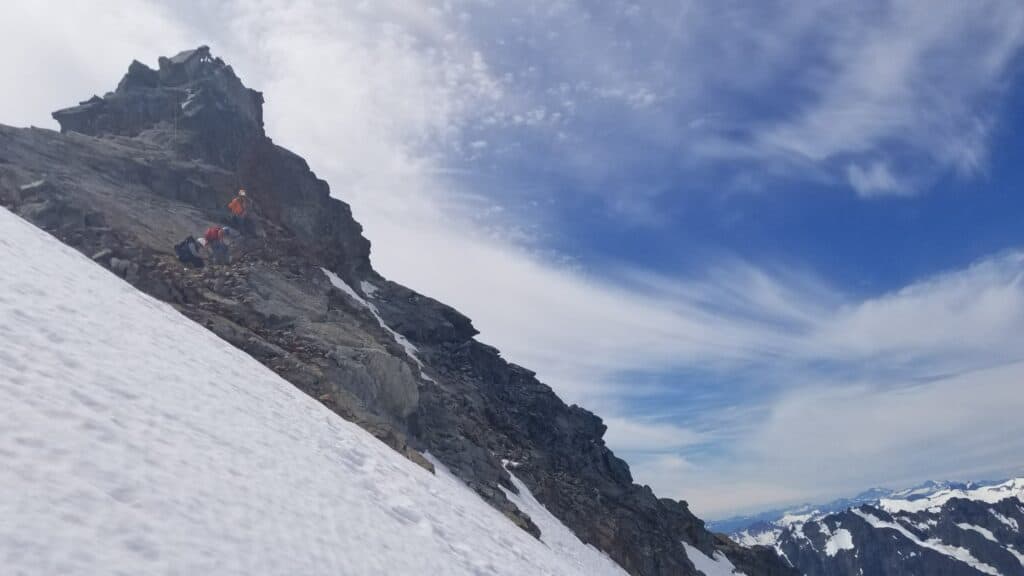
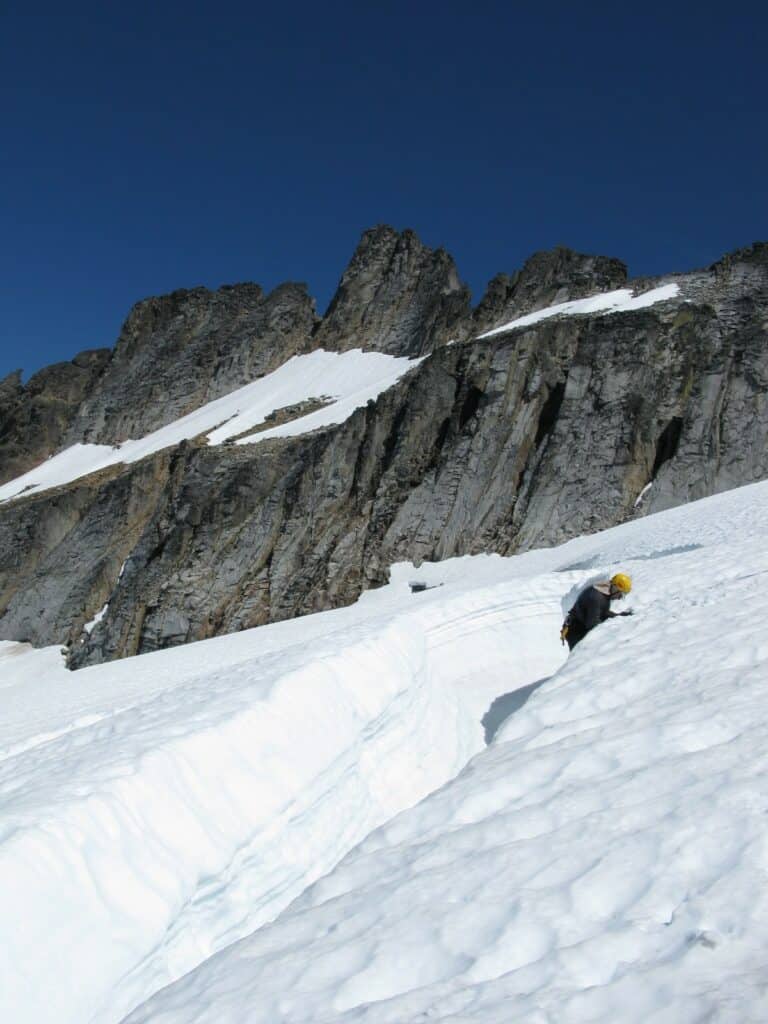
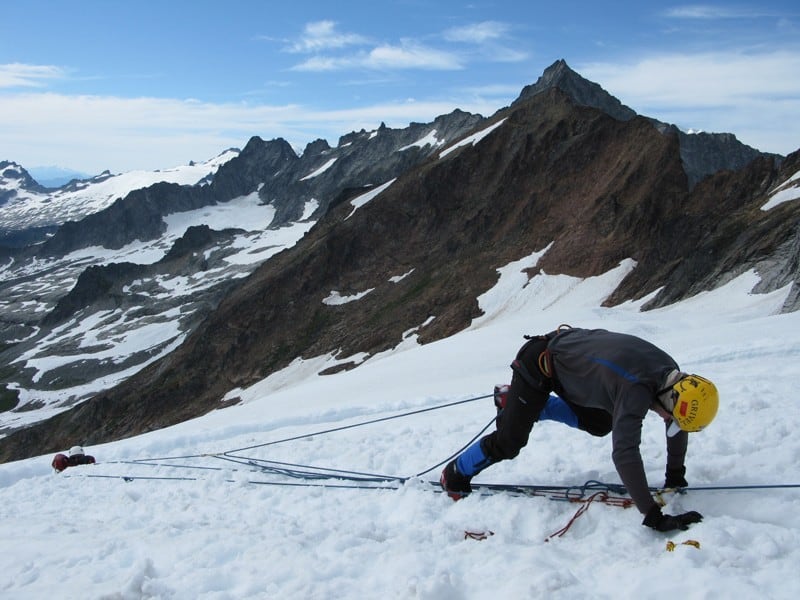
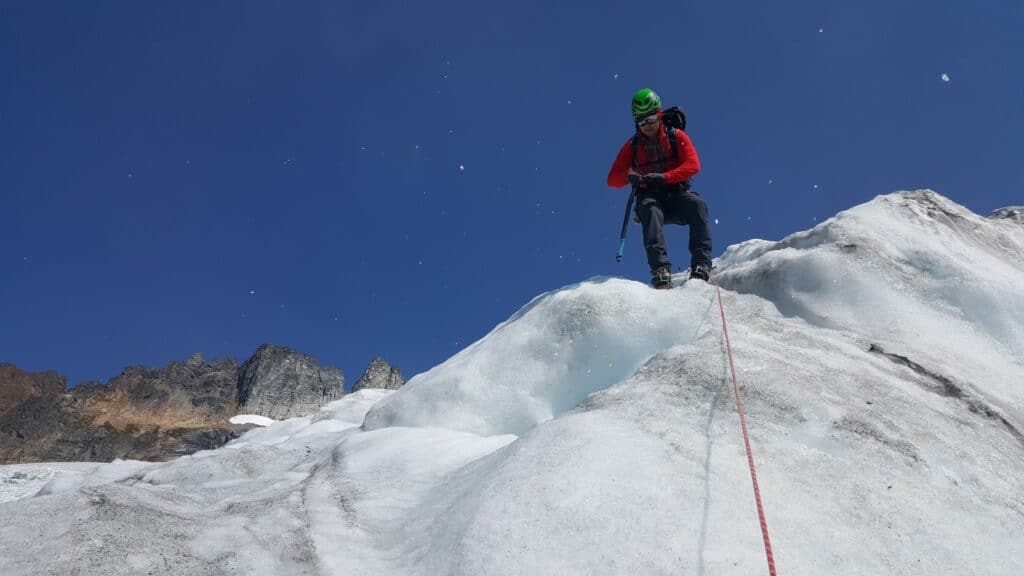
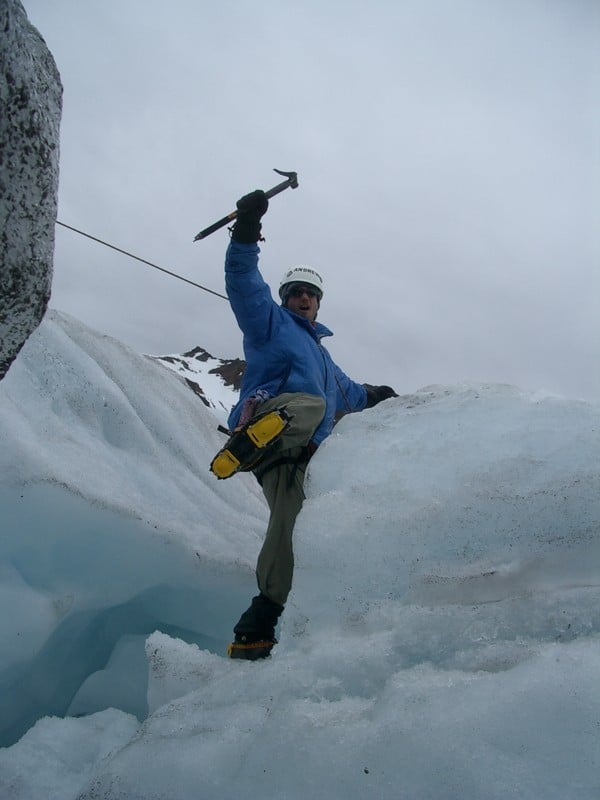
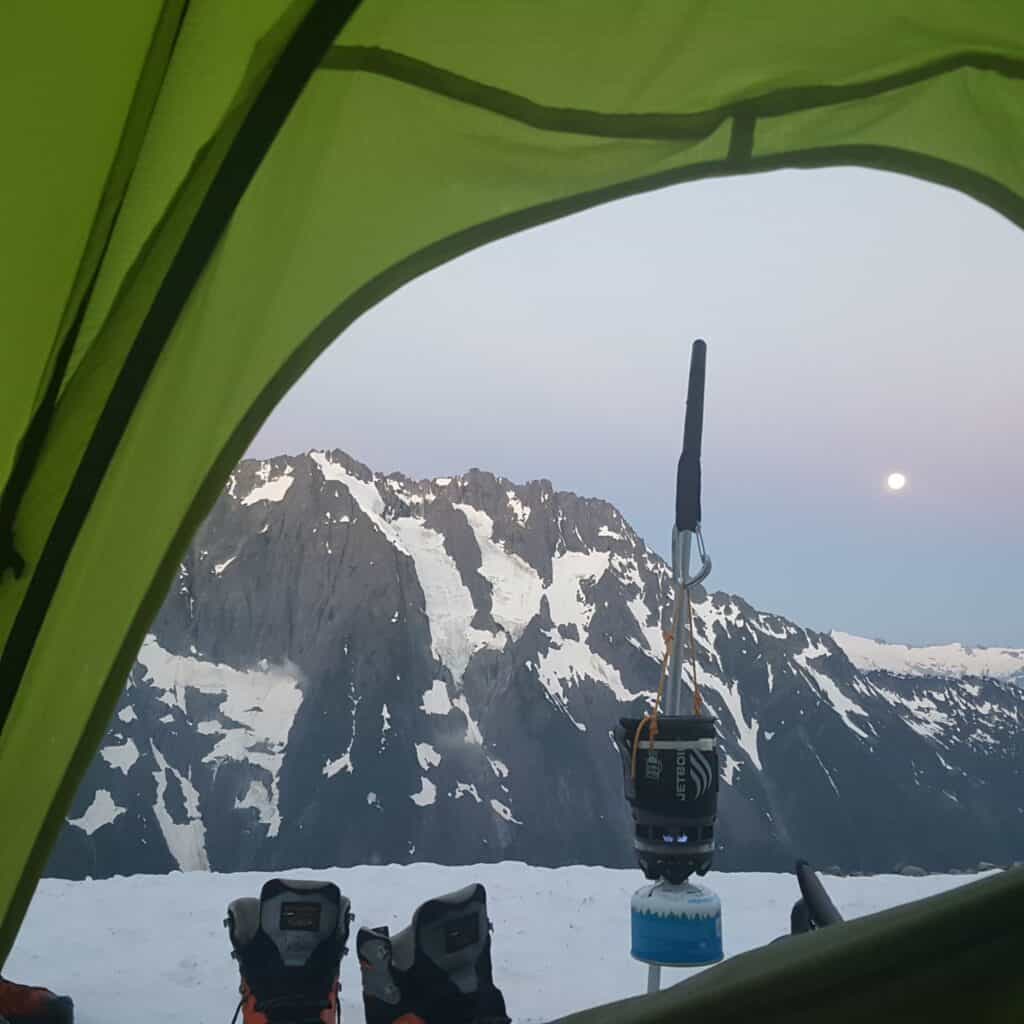
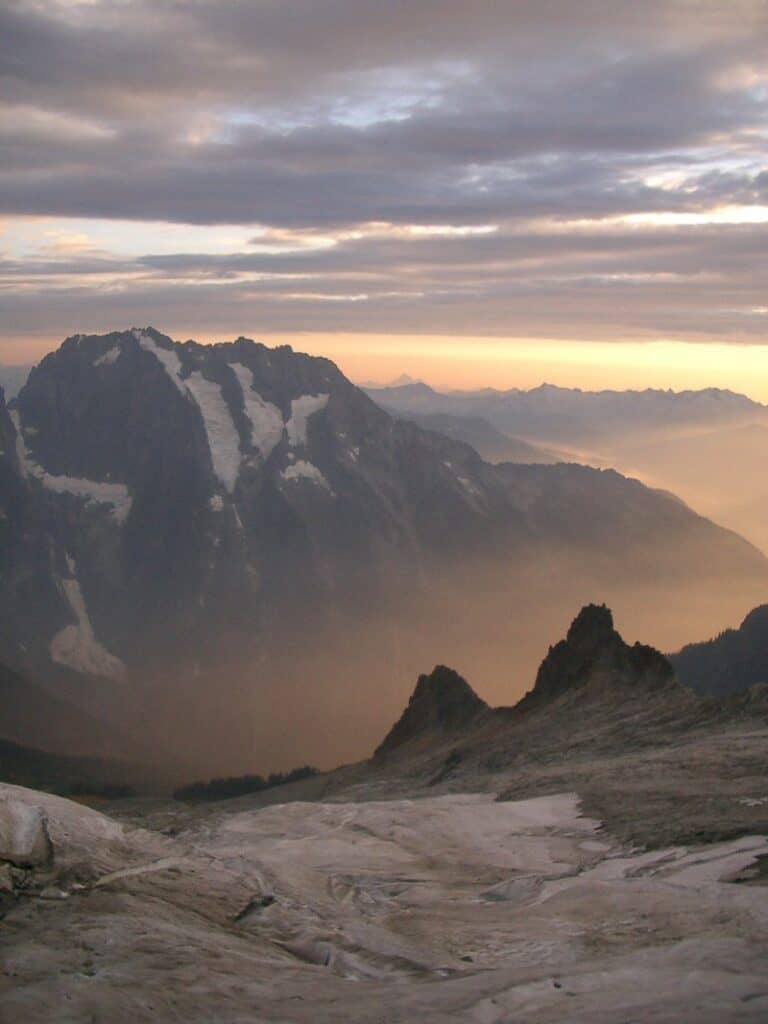
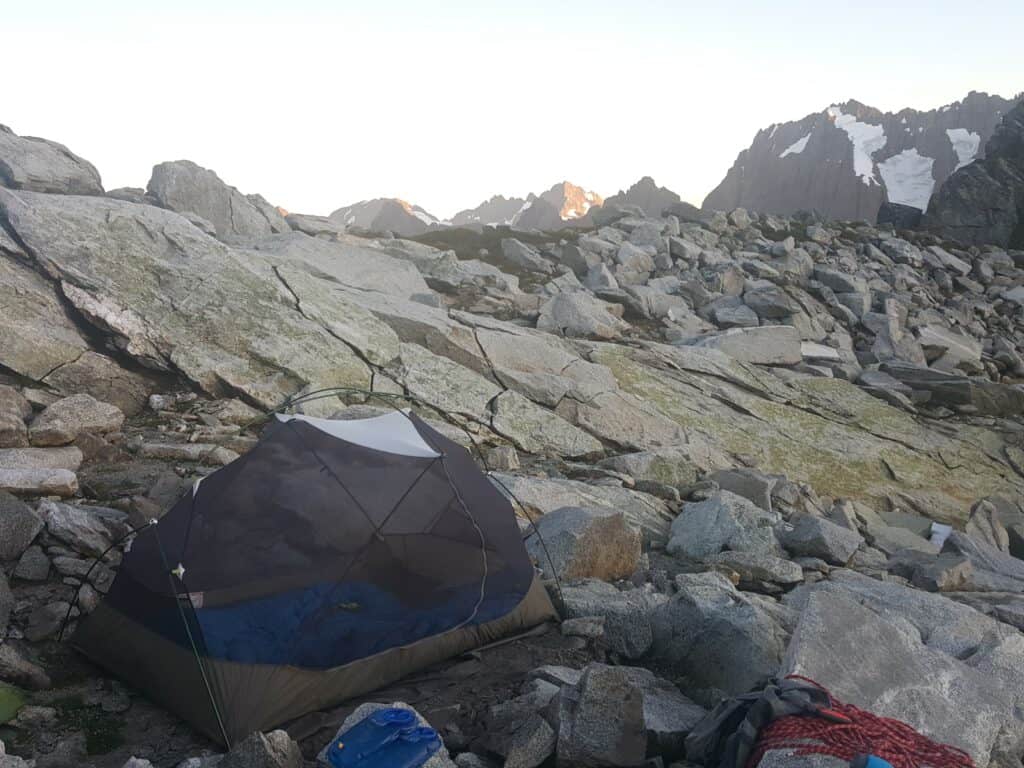
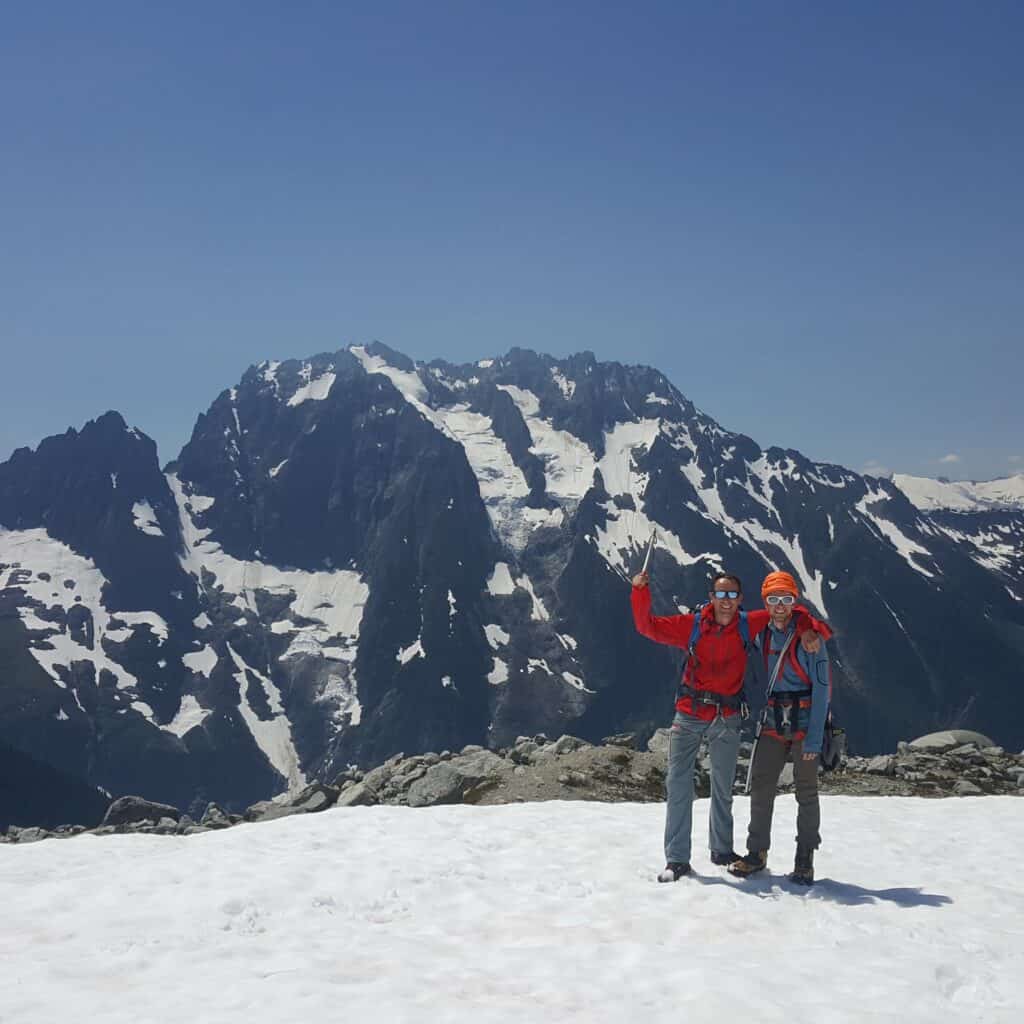

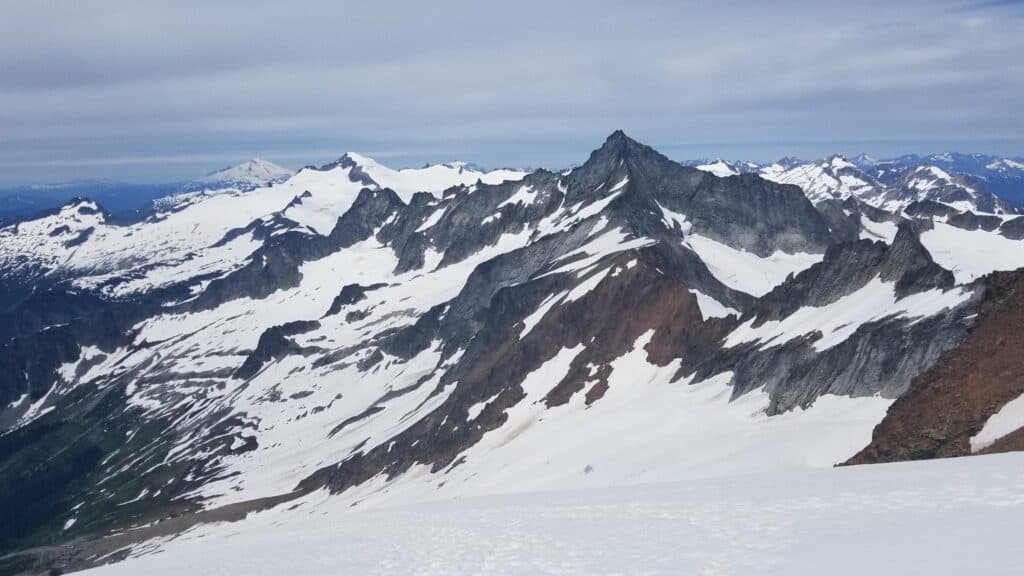
This in-depth introduction into the world of mountaineering will get you ready for many of our other guided programs or personal climbing adventures all over the world. We will set up base camp in the Boston Basin area (or possibly the Eldorado Plateau) and conduct our course from there. The rugged terrain provides a perfect classroom for this curriculum-packed course, and the small client to guide ratio allows for movement-based learning in relevant terrain. Very strong physical fitness is a must if you want to enjoy this course. We also offer a 3-day mountaineering course on Mt. Baker, a 3-day Women's mountaineering course on Mt. Baker, a 4-day mountaineering course in the North Cascades, and a 4-day mountaineering course on Mount Baker.
Why Pro Guiding Service? We have been a concessionaire in the North Cascades National Park for over 18 years with a perfect safety record. Our 3:1 ratio is a very important factor in being able to tailor the program to the participants' needs. A small group is crucial in being able to take advantage of what Boston Basin has to offer, and we designed this course to combine the excellent instructional environment of Boston Basin with summit climbs of Sahale Peak or Sharkfin Tower. We pride ourselves in creating movement-based lesson plans in rugged mountain terrain. The curriculum was originally designed by Martin Volken, an IFMGA guide and owner of Pro Guiding Service. With the help of his guides, the curriculum gets updated and you can be assured that you will be taught an up to date course. Pro Guiding Service's guides are professional mountain guides, meaning they are either certified guides or are actively pursuing a path of professional mountain guiding education by the American Mountain Guides Association. The Boston Basin is a steep and partially glaciated cirque that is rimmed by spectacular peaks in all levels of difficulty.
If none of our advertised dates work for you we can set up custom dates for you. Just call us at 425-888-6397 ext. 2 or email info@proguiding.com.
Why the North Cascades Mountaineering Course?
1) Easy access: You can get to the meeting location in Marblemount, WA from the Seattle area in a short 3 hour drive (1 to 2 hours from Vancouver, Canada), and be at camp in Boston Basin that afternoon. Our camp will be established at either 5400 feet or 6000 feet. From here we can access glaciated terrain in about 30 minutes, learning part of the basic movement skills curriculum while en route. You will be immersed in the alpine environment of Boston Basin with Forbidden Peak, Sharkfin Tower, Sahale Peak and Johannesberg Mountain providing an amazing classroom and backdrop.
2) Glaciers, Ridges, Towers and Slabs: General mountaineering comprises many technical elements on many different terrain types. What makes the area so special is that just about all the different terrain types are immediately accessible from camp. We generally describe the area of the Boston Basin as a compressed version of the Swiss Alps. This is what makes the area ideal for educational courses. The Quien Sabe Glacier above camp is easily accessible. It provides enough crevassed terrain to warrant real glacier travel techniques. But before that the access hike will allow for opportunities to walk on glacier polished slabs and teach basic route finding techniques. Sahale Peak via the Quien Sabe Glacier is an entertaining and rewarding summit that introduces glacier travel, before it turns into an exposed ridge. The final few steps of easy, but exposed rock climbing will bring us to the exceptionally scenic summit. When climbing Sharkfin Tower, we will be exposed to moat navigation, steep snow climbing and finally mid fifth class climbing on excellent granite, again barely two hours from camp. There is also the newly named Aiguille de l'M, which is a small summit in the Forbidden Peak zone and a prime training ground for classic ridge travel. These objectives are big enough to feel like you are standing on a real summit, but attainable enough that we can utilize the routes for educational purposes.
3) Moderate elevation: The moderate elevation of the North Cascades makes a huge difference in how you feel. You do not need to worry about acclimatization, you can just concentrate on the technical aspects of the course curriculum, which is great. There is a lot to learn.
A word about the camps: The views from the camps are dominated by Johannesberg Mountain on the other side of the valley. This backdrop is very dramatic and nobody ever seems to tire of it. There is also running water and a composting toilet available in both camps. As simple as these two things are, they make a big difference in creating a comfortable atmosphere around camp.
A lot of information: The course is designed to offer an in depth introduction to the exciting world of classic mountaineering. The days are packed with physical movement and hands-on learning while still providing a couple hours each afternoon to just relax in camp.
Overall Difficulty: moderate
Skills required: no prior mountaineering experience required, but strong movement skills and comfort in exposed terrain are a must
Fitness level: very good physical fitness. The terrain in the Boston Basin (and North Cascades National Park in general) is very rugged. Even the approach trail to the Boston Basin is steep and rugged. Once in the Basin, the trail eventually fades away and the movement over rocks, slabs and glaciated terrain is tiring. This is why very good fitness is a strong prerequisite for this course.
SAMPLE ITINERARY
Day 1: You will meet your guides at the Marblemount Ranger Station and then caravan up the Cascade River Road to the Boston Basin trailhead at 3200 feet. The ascent up to the camp at 5400 feet is not that long, but it is strenuous. You should be there in the middle of the afternoon with enough time to cover the following topics near camp:
Day 2: You may climb Sahale Peak in first part of the day, before concentrating on the technical components of Crevasse Rescue and Cramponing Technique on the Quien Sabe Glacier. This day is packed with action and instruction, so a near dawn start is required to get it all done. Topics covered:
Day 3: Yet another early start. We want to give you another opportunity to move on ice, so we have to commute back up to the Quien Sabe Glacier to spend a few hours working on cramponing and ice climbing techniques. In the early season, there might not be any ablated ice around to climb on yet. In that case we might opt to work on more 4th class movement in the lower Boston Basin. We will return back to camp just before noon for a quick lunch break before heading down the trail at around 2pm. Topics covered:
Please note that while we intend to hold these course in the Boston Basin, permit limitations along with weather and general mountain conditions might make it necessary for us to change the course location to equally great places like the Eldorado Plateau, the South Side of Mount Shuksan or previously undisclosed locations.
We answer this question on the phone regularly, so let us try to answer it here: The basic topography of the two venues is quite different. The Mount Baker course venue happens on almost exclusively glaciated terrain. The Coleman, the Deming, the Easton and potentially the Roosevelt Glaciers are our training ground and with that the focus is centered around all things snow and ice. Glacier travel, crampon work and crevasse rescue is a large topic on the Mount Baker Course. It certainly is an important topic in the North Cascades Course as well, but you will spend more time on these topics on Mount Baker.
The North Cascades Mountaineering Course takes place in the Boston Basin (or similar locations) in the shadow of the famous Forbidden Peak. The area essentially holds every element that you might encounter on a “classic mountaineering adventure”. The Boston Basin holds glaciers, steep couloirs, glacier polished slabs, narrow ridges, big faces and sharp peaks. Just like on Mount Baker, we teach very much what the terrain demands or rather we chose an extremely diverse zone of the North Cascades National Park to give the course participant a rounded introduction into world of mountaineering.
Both of the approaches into the camps are moderately strenuous, but the Boston Basin trail is steeper. Both camps have running water and the views are stunning either way.
As soon as you leave camp, things start feeling a bit different. While you might have to commute for about 45 minutes up slabby rocks to reach the lower margins of the Quien Sabe Glacier and the amazing Sahale and Sharkfin summits beyond, you will find yourself wearing the crampons on the lower Coleman or Easton Glacier of Mount Baker almost immediately.
If you are looking for a great course to make you feel more comfortable on large glacier ascents (Rainier etc.), the Mount Baker Course is most likely for you, but if you are looking for an all-around introduction to the world of mountaineering and would like to summit classic peaks like Forbidden Peak, Mount Shuksan via the Fisher Chimney or maybe the Matterhorn, the venue we offer in the North Cascades is hard to beat.
In summary; if you want to truly learn the craft of mountaineering, you should take both courses. We are not saying this to sell more courses. Either one of these courses is a great start and there is some overlap, but together they build a fantastic mountaineering skill foundation.
No, we do not provide food, but are perfectly happy to make food suggestions. You can CLICK HERE to check out our food recommendations for packing for your trip.
There is a small grocery store in the local Shell Station, but it only carries basic things. The last bigger grocery store is located near Concrete, WA.
Yes, you will most likely summit a couple of peaks over the course. These peaks might be Sahale Peak and Sharkfin Tower. It also means that the entire nature of the course is more movement based and that you will be applying new concepts right away.
Yes, the trip is designed for novices and mountaineers with limited experience. The course is by nature of the terrain physically demanding. Good fitness is a prerequisite to your enjoyment of the week.
We will be camped at around 5500 feet near tree line in the Boston Basin. Our camp is located right next to a small creek. This makes cooking and hydrating very easy.
The hike in to basecamp takes 2 to 3 hours.
We will start heading down from our base camp at around noon. This means that we will start driving at around 3pm and be back in the Seattle area in the early evening.
Although tipping is not a requirement, it is considered standard practice in the guiding industry and is appreciated by our guides. We generally recommend roughly 10%-15% of your course or trip cost or a flat amount that you are comfortable with.
